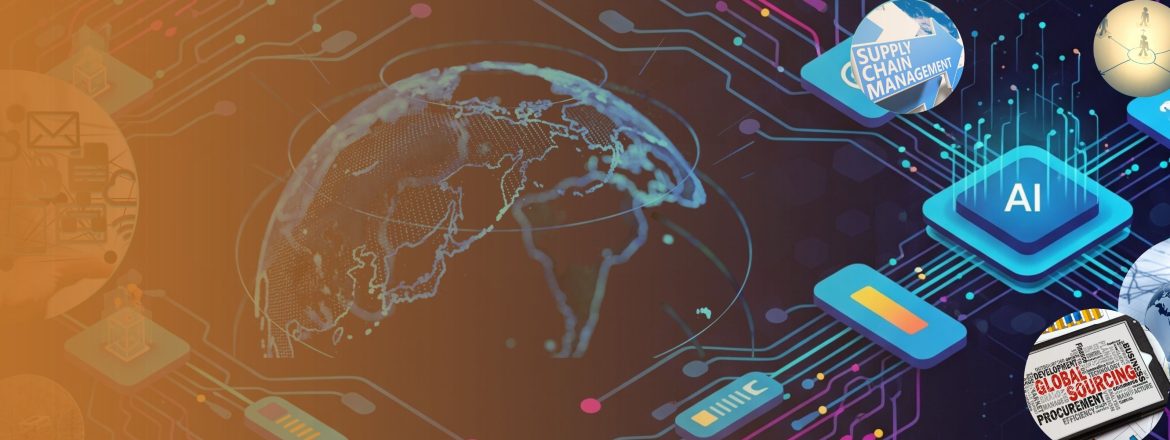AI in Sourcing: Revolutionizing Procurement Strategy with Intelligence & Automation
Introduction: The New Rules of Strategic Procurement
As global supply chains shift under the pressures of uncertainty, digitisation, and sustainability, we are witnessing the limitations of traditional procurement models. The urgency and expectations for speed, accuracy and agility have never been higher, forcing organisations to rethink how sourcing decisions are made. Central to this shift is one of the most significant disruptive technologies we have seen: AI in Sourcing.
AI has entered into an arena never before seen and has an impact on how organisations plan, analyse and execute procurement. AI enables organisations to distill valuable insights from massive, fragmented data sets, enabling them to transition from reactive buying to proactive decision-making, a shift well overdue in the procurement space.
Why AI is the Brain Behind the Modern Procurement Strategy
A solid Procurement Strategy today includes much more than price negotiations and supplier selection. It involves risk management, compliance to regulation, adherence to ESG (environmental, social and governance), cost optimization, and (resilience.) AI is making it possible to pull these moving pieces into one decision-making matrix with real-time data, predictive analytics and machine learning algorithms.
Where once procurement relied on spreadsheets and gut feeling, AI is bringing back logical certainty. For instance, supplier scorecards are dynamically updated against delivery timelines, compliance red flags, or macroeconomic indicators. The outcome is procurement that is not only efficient but also intelligent—which can anticipate disruption, modify contract terms, or even recommend alternative sourcing channels without human intervention,
AI is no longer optional for companies that are trying to scale responsibly—it is non-negotiable.

Procurement Transformation Services: Where Technology Meets Process Evolution
With the introduction of Procurement Transformation Services, organisations are now reframing their thought processes around sourcing. Rather than simply digitising current processes, Procurement Transformation Services represent a reimagining of the procurement function with a technology-first mindset. Companies that seek out Procurement Transformation Services will evolve their procurement focus from linear, manual cycles to an integrated model with smart procurement engines. These platforms offer artificial intelligence (AI) powered discovery of vendors, automatic generation of contracts, and cognitive processing of invoices all in a single experience.
More importantly, instead of just translating a manual process to technology, Procurement Transformation Services bring the ability to deliver strategic value by enabling procurement to tie their activities to organisational priorities related to cost reduction, risk reduction, supplier diversity, and sustainability. Since so much of the automation is powered by AI, teams that operate in an AI-enabled procurement technology environment have more time to build relationships, drive innovation, and shape category strategies.
Real-Time Decision Support and Risk Management
In a changing global marketplace, sourcing decision makers rarely can take their time to make decisions, and often are working with incomplete data, but AI can start to help fill in some of these gaps when it can analyse real-time market signals of currency exchange rate changes, geopolitical changes, commodity pricing movements, and pull those all into a procurement dashboard.
This new ability to provide predictions on procurement risks and opportunities is changing the ways in which supply networks are managed, and AI-driven systems can provide alerts in situations where a supplier has shown signs of financial damage, or where shipment impediments show up in global ports.
Some of the largest sourcing companies in India have already started including these types of tools in their service offerings to international clients, so that they can have a better planning process and be less susceptible to supply chain shocks.
Human-AI Collaboration: Procurement Professionals Evolve
The increased role of AI in Sourcing does not mean that the human buyer will no longer be needed. It only means they will focus more on strategic responsibilities rather than unobtrusively managing administrative tasks. Sourcing professionals will now focus on interpreting data, managing risks, and enabling innovation.
As repetitive tasks become automated, professionals can shift their focus to higher-value tasks like supplier relationship management, sustainable sourcing negotiations, and collaborative product development.
Moreover, AI introduces a new way to eliminate bias in vendor evaluations. Manual evaluations can be biased based on personal preferences and opinions. AI produces information about how vendors rank based on objective data, resulting in a more transparent and defendable sourcing process.
India's Advantage in AI-Driven Procurement Services
India is fast becoming the leading choice for technology enabled sourcing assistance, with a solid IT infrastructure, and increased pool of procurement professionals. Firms engaged in Procurement Services in India are also utilizing AI modules which give their global customers predictive analytics, supply visibility and supplier performance based on data points related to global suppliers.The elements offered endorse Indian procurement firms as not simply a back-office facility, but a ‘go-to’ partner in the global sourcing framework. For multinational brands managing fragmented supplier networks, India’s amalgamation of domain knowledge and an AI powered system is both cost effective and is superior in fast forward operational context.
This is also transforming how sourcing firms in India position themselves and move from simply being transactional enablers to becoming procurement solution architects.
Conclusion: The Future is Intelligent, Not Just Automated
Procurement cannot afford to be reactive or transactional in an increasingly complex world. AI in Procurement is no longer an abstract concept, it is defining sourcing behaviour, improving strategy, and changing how value can be derived from supplier ecosystems.
As AI tools become more entrenched and matured in procurement processes, procurement leaders will stretch the gap between themselves and the laggards. Those who advance intelligent procurement technologies today will be better prepared for the unknowns of tomorrow—faster and with a more agile and resilient approach.









